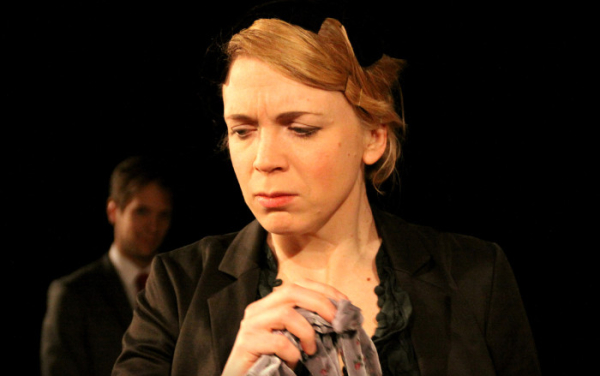The Massacre at Paris (Rose Theatre, Bankside)

© Robert Piwko
Christopher Marlowe's plays are in full bloom at The Rose. Barely a month on from Martin Parr's production of Doctor Faustus, James Wallace's revival of A Massacre at Paris invites further questions on Marlowe's legacy. The two productions are wildly different in their approach, yet both seek to reconnect these often over-looked plays with the wider Renaissance dramatic culture that continues to grace the South Bank to this day.
The Massacre at Paris has not been performed in London for 400 years. It essentially condenses 17 years of Machiavellian French politics into a 90-minute storm of death and deceit. We begin with the wedding of King Charles IX's sister to the King of Navarre; however, while the white confetti lingers on the stage, the sense of joy does not. The deaths come thick and fast, particularly in the play's first half with the dramatization of the St Bartholomew's Day Massacre. The dangerous Duke of Guise (John Gregor) lusts after power, using Catholicism as a means to justify violent Protestant deaths and control the state.
It's bloody, gutsy, and remorseless: William Oxberry, who edited the play in the 19th century, describes the plot as "contemptible", and even goes as far as to say that the play is "not so much a tragedy as a burlesque upon tragedy". However, Wallace's production doesn’t shy away from this. If anything, it revels in the play's carnivalesque atmosphere of slaughter and maniacal despotism. Soon, handfuls of white confetti are replaced by red, thrown through the air in a brazen celebration of violence. The potential incompleteness of the play (the first published text has only 1586 lines) is used to Wallace's advantage: short, sharp scenes are intercut with rockabilly music, dragging the audience along for the ride and enabling us to revel in it against our better judgment.
Astute lighting choices transform a potentially limiting space into a place of performative richness; Wallace clearly has a superb eye for detail. This extends to his direction of the cast: Gregor gives a powerful performance as the Duke of Guise; Kristin Milward uses her deliciously rich voice to full advantage in her portrayal of Catherine, Queen Mother of France; and James Askill as Henry of Anjoy manages to walk the giddy line between silly and disturbing.
We're graced with a true ensemble cast, with around 40 characters being played by 14 actors. One of the choices of doubling is particularly intelligent and astute to the point of eliciting both shocked and delighted gasps from the audience. Decisions such as this characterise this thoughtfully executed piece and elevate it to an irresistibly enjoyable spectacle: this production is bold to the point of cheekiness, and all the better for it.
The Massacre at Paris is at The Rose Playhouse, Bankside until 29 March










